U.S. Army Vietnam War North Aurora, IL Flight date: 09/16/21
By Charlie Souhrada, Honor Flight Chicago Veteran Interview Volunteer
Keith Kolozie was born in Chicago and grew up in the city’s south side, but he found direction in the jungles of Vietnam. Thanks to Keith’s hard-working parents, Violet “Gerry” and Frank, he and his sister, Karen, enjoyed a typical, mom and apple pie childhood – walking to school, creating their own ball fields, and playing outside ‘til the streetlights came on. “It was a nice childhood,” he remembers. “We had lots of freedom and we weren’t concerned about much of anything.”
During high school at Fenger, Keith joined the swim team and worked after school at Don’s Drive-In. He remembers walking to work in four feet of snow during the Chicago blizzard in January, 1967 to open the store to help customers get something to eat. “That was something I’ll never forget!” he says with a laugh.
After graduating high school in 1965 and studying business at Aurora University for a couple of years, he decided full-time school wasn’t for him and decided to make a change. “The draft was threatening,” he says. “That fall, several of my friends were drafted so I decided it was time for me to volunteer.” He recalls eighty children lived on his block at the time and four of them, including Keith, entered the service at the same time. “I went to the draft board and told them: ‘take me now or don’t take me at all’ … they said ‘You’re here and you’re not going anywhere!’”
A few months later, on August 2, 1967, he was on a train headed to Fort Leonard Wood, Missouri, for Basic Combat Training. Basic was tough and grueling, but he learned the routine, how to handle a weapon, how to work as part of a team and he got through it. After completing Basic, he was sent to Fort Polk, in Louisiana. He got the infantry card and was assigned to his military occupational specialty, 11C, which included additional weapons training as a member of a mortar squad. At Fort Polk, Keith discovered a “strong internal gyroscope” and an ability to read maps, two skills which helped him and others during his service in Vietnam.
In January, 1968, after several months of training, Keith took a commercial flight to Da Nang Air Base, arriving just as the Tet Offensive was starting. There, he gained additional training and a greater appreciation for the challenges that lay ahead. “We all had some sense of how bad it was going to be, but until we got there and experienced it first-hand, we really didn’t know what we were getting into,” he says.
After just a few days of in-country training, Keith and four other soldiers were sent to a base camp in the field. “Our company was always short-handed,” he remembers. “And they had lost some people, so they needed replacements as soon as possible.” For the next nine months, Keith was in the field on patrol from various base camps or “landing zones.” Ironically, he remembers feeling more secure in the field than he did at base camp. “At base camp, you’re kind of a sitting duck. In the field, I felt more control because I knew who was around and what they were going to do.”
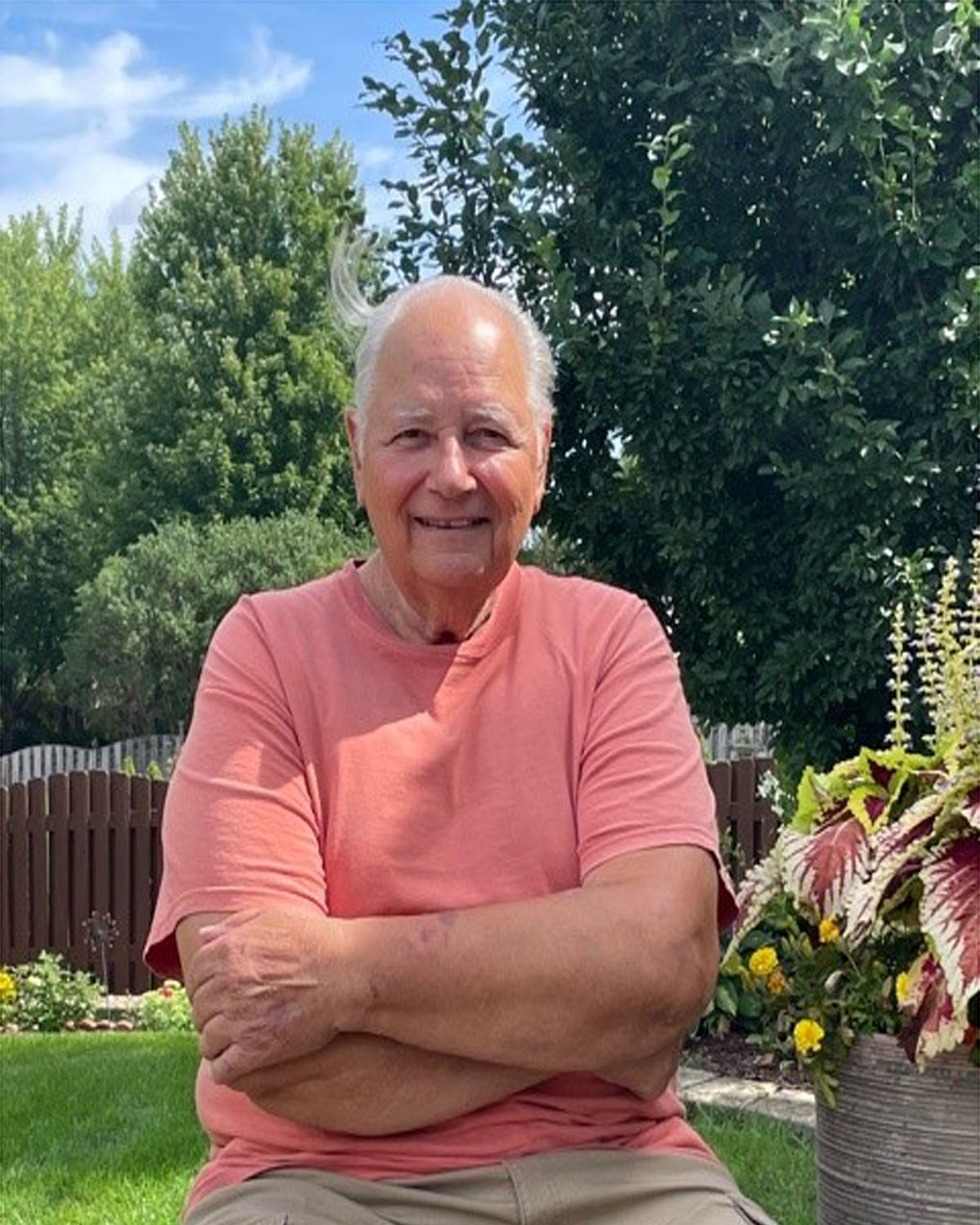
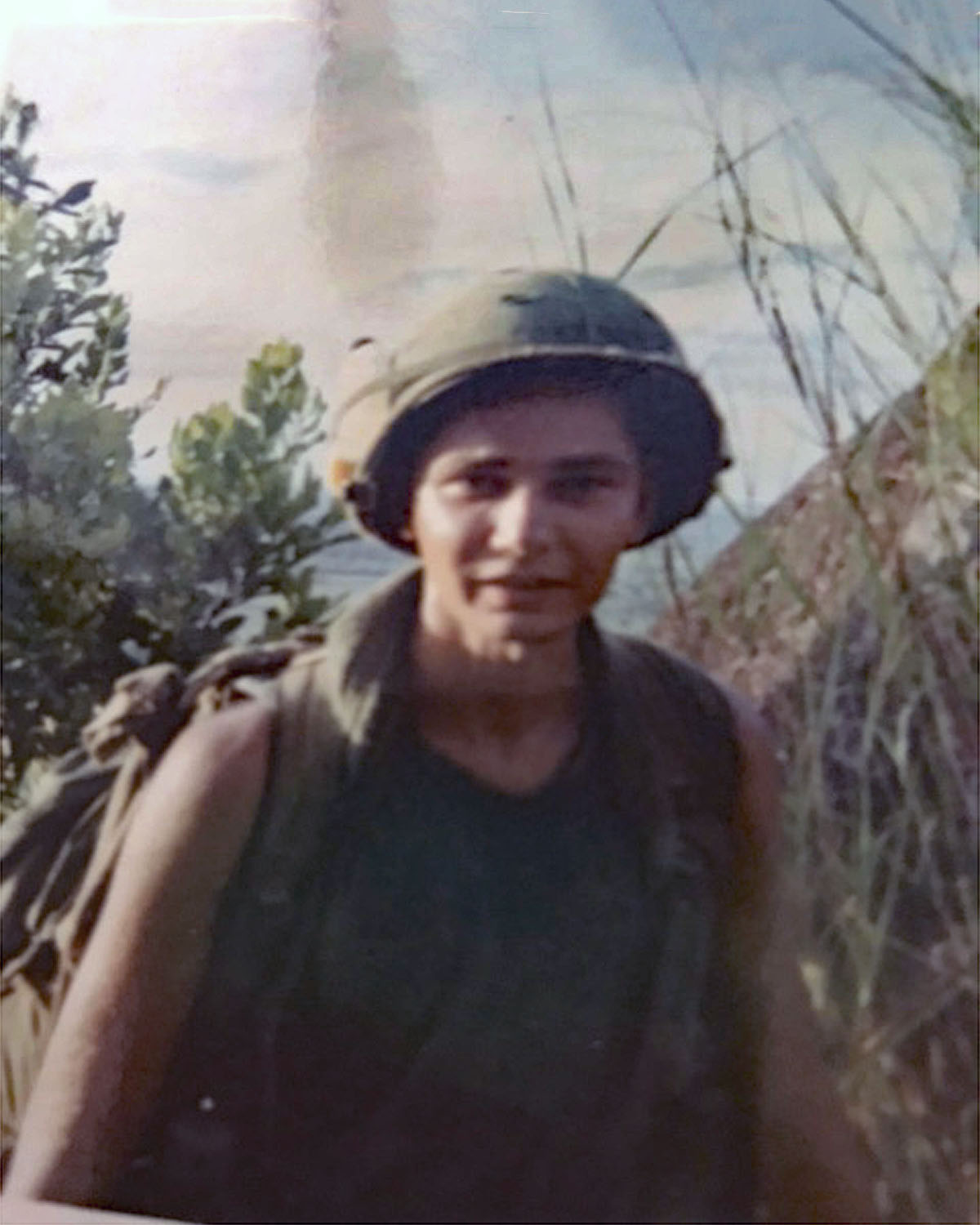
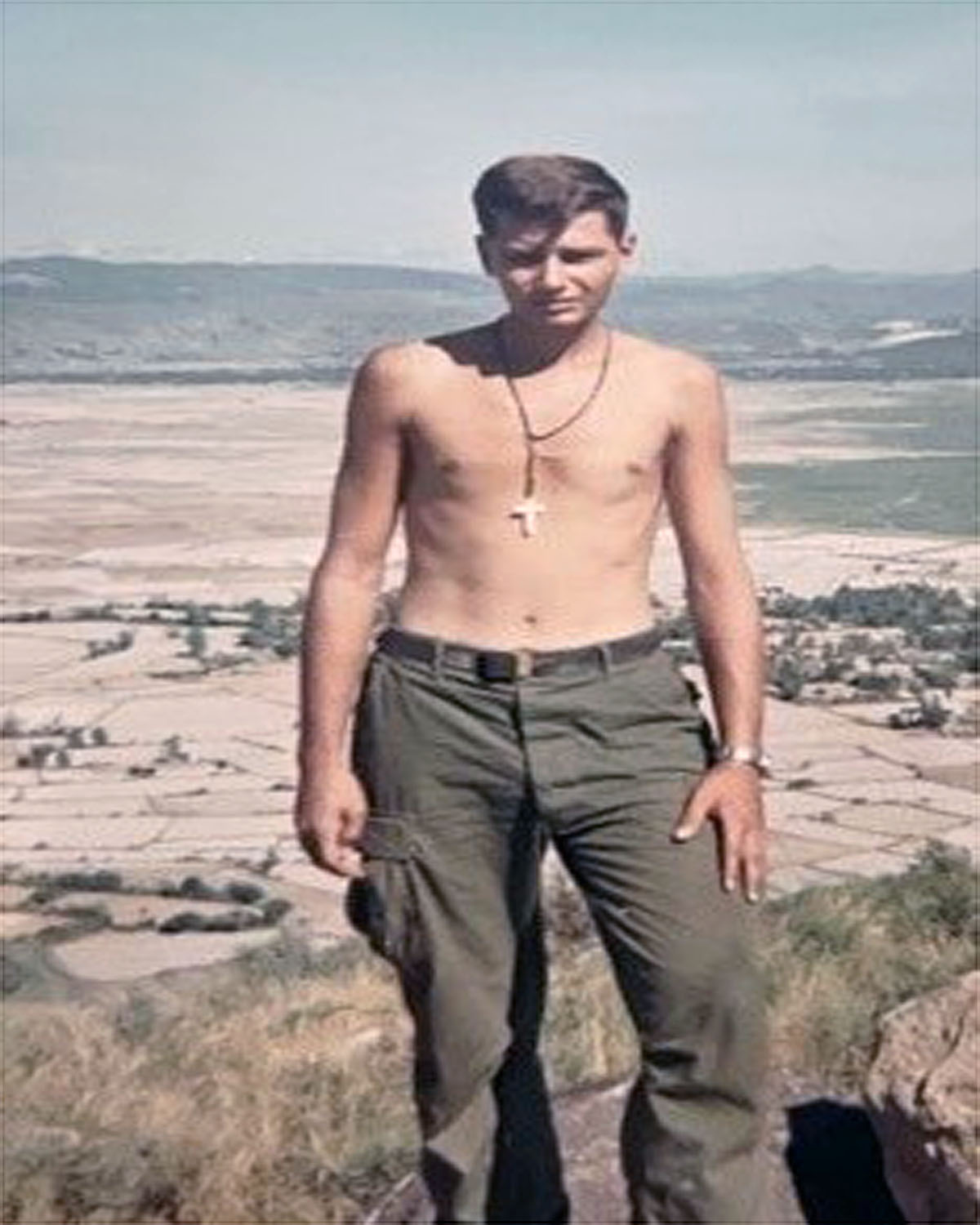
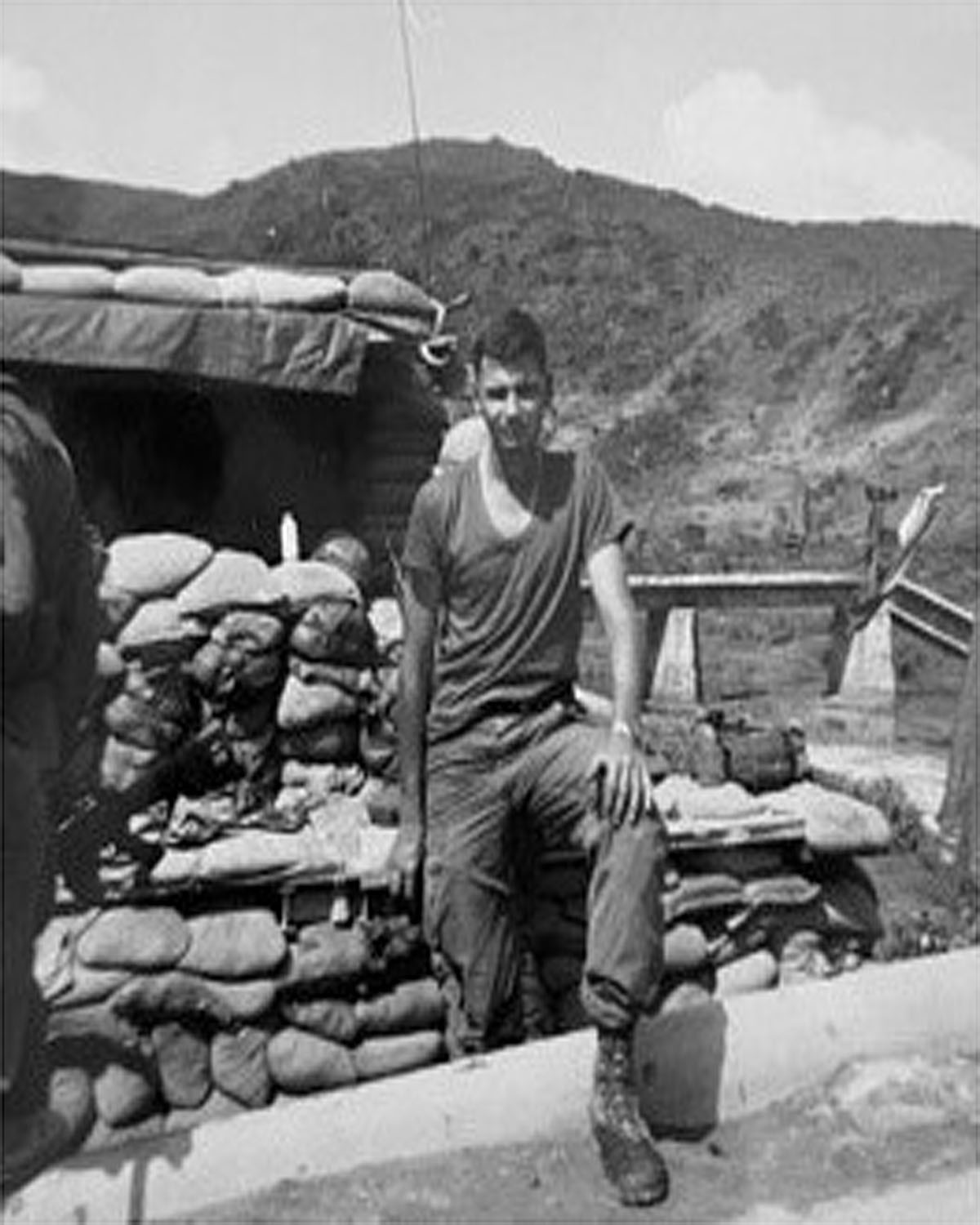
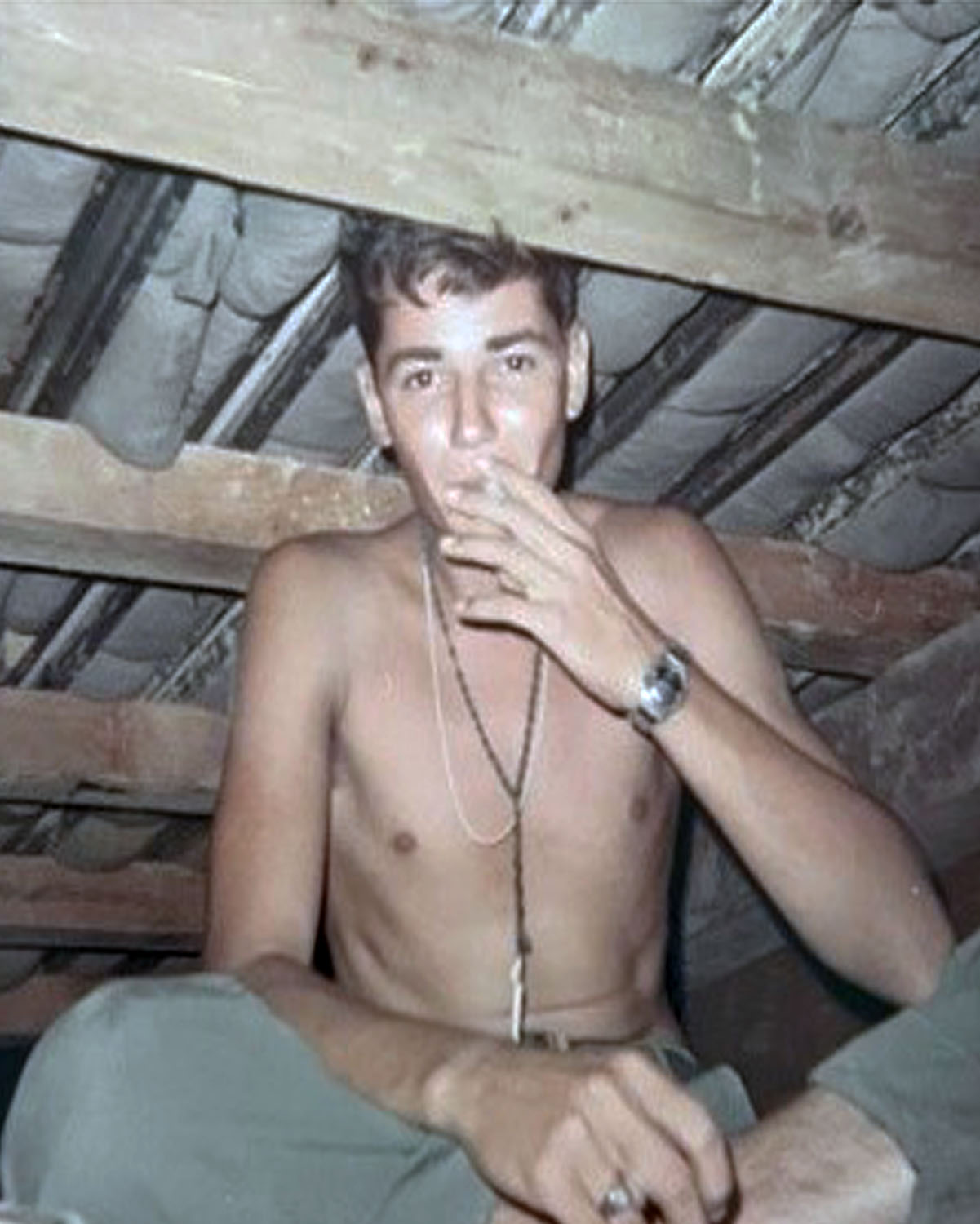
Keith experienced “baptism by fire” when his squad put him on point – the most vulnerable position – right from the start. “They found I was really good at it, so I did that for a while. My instincts were good. I had a sense of where I was going by reading the maps and, not that I enjoyed it, but I became proficient at hacking through bamboo with a machete.” Years later, during an Army reunion, one of the men from his mortar platoon paid Keith the ultimate compliment when he told Keith: ‘You’re the reason I’m alive … because I followed you and what you were doing.”
He quickly found other skills that kept him alive too, including serving as radio operator for the squad’s commanding officer, where he was responsible for calling in artillery or mortar support as a fire direction control specialist.
In May 1968, during a search and destroy mission to find contraband, Keith had a close encounter with a venomous, 12-foot-long King Cobra. “We were poking and prodding haystacks with M-16’s fixed with bayonets and suddenly this cobra came at me, and I just froze. Everybody around me was yelling and screaming to get it to move. Finally, it slithered far enough away from me and we must’ve shot him about 50 times!”
Snakes weren’t the only slimy creatures he experienced – leeches bothered him the most. During one patrol in monsoon season, Keith’s squad was literally getting shot at and had to cross a stream for safety. They noticed leeches in the water that were the length of a man’s arm. “Looking at that you say ‘man, do I want to go in there?’ You’d almost rather get shot because that’s how bad it was!”
Throughout nine months in-country, Keith and his squad were under constant threat of ambush or harassing fire. No matter what hardships or atrocities he encountered, his mind was firmly set on completing his tour and getting out of Vietnam. On September 3, 1968, his squad was ambushed with deadly consequences. That day, the enemy detonated a bomb that killed three members of his squad, including First Lieutenant Steven J. Riggs, the squad’s infantry unit commander. The blast launched Keith eight feet into the air. “I don’t know how I survived,” he says. “I ask myself that question all the time. War is random and it’s not pretty.”
One month later, Keith earned his sergeant stripes. In March 1969, his year in Vietnam was complete and he was rotated out and sent back to Fort Polk where he served his final six months as a drill instructor for truck drivers. “That was the last thing in the world that I wanted to do, I hated it!” he says. He earned his honorable discharge August 1, 1969, then drove 14 hours straight to get back to Chicago.
When he got home he slept for two days. “My mother thought I was dead!” Three months later, he married Linda, his teenage sweetheart, and in 1974, their daughter Kristie was born. Keith soon found a job at Merchandise National Bank as a credit analyst. His rise through the ranks was quick, but he discovered he didn’t like being cooped up in an office and used the GI Bill to finish his business degree at Governor’s State University.
He worked in the restaurant industry for a few years before taking a job opening recruiting offices for the Army Corps of Engineers. This blossomed into a career in real estate development. In 2013, he officially retired from Safety-Kleen as director of real estate, and now spends his time gardening, reading, and doting on his granddaughter Sydni. He also enjoys volunteering as an usher at the Paramount Theatre in Aurora.
“I guess you could say I’m still a way finder, trying to help people find the way!” Keith laughs.
Thank you, Keith! Honor Flight Chicago salutes you for your courageous service for our country!


